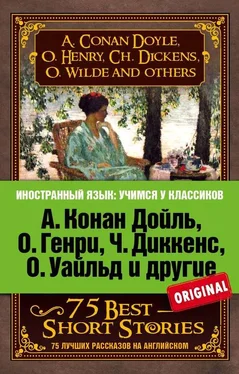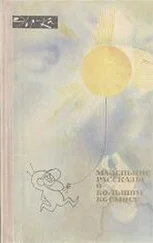‘Adrian Borlsover,’ wrote the hand, ‘Eustace Borlsover, George Borlsover, Francis Borlsover Sigismund Borlsover, Adrian Borlsover, Eustace Borlsover, Saville Borlsover. B, for Borlsover. Honesty is the Best Policy. Beautiful Belinda Borlsover.’
‘What curious nonsense!’ said Eustace to himself.
‘King George the Third ascended the throne in 1760,’ wrote the hand. ‘Crowd, a noun of multitude; a collection of individuals – Adrian Borlsover, Eustace Borlsover.’
‘It seems to me,’ said his uncle, closing the book, ‘that you had much better make the most of the afternoon sunshine and take your walk now.’ ‘I think perhaps I will,’ Eustace answered as he picked up the volume. ‘I won’t go far, and when I come back I can read to you those articles in Nature about which we were speaking.’ He went along the promenade, but stopped at the first shelter, and seating himself in the corner best protected from the wind, he examined the book at leisure. Nearly every page was scored with a meaningless jungle of pencil marks: rows of capital letters, short words, long words, complete sentences, copy-book tags. The whole thing, in fact, had the appearance of a copy-book, and on a more careful scrutiny Eustace thought that there was ample evidence to show that the handwriting at the beginning of the book, good though it was not nearly so good as the handwriting at the end.
He left his uncle at the end of October, with a promise to return early in December. It seemed to him quite clear that the old man’s power of automatic writing was developing rapidly, and for the first time he looked forward to a visit that combined duty with interest.
But on his return he was at first disappointed. His uncle, he thought, looked older. He was listless too, preferring others to read to him and dictating nearly all his letters. Not until the day before he left had Eustace an opportunity of observing Adrian Borlsover’s new-found faculty.
The old man, propped up in bed with pillows, had sunk into a light sleep. His two hands lay on the coverlet, his left hand tightly clasping his right. Eustace took an empty manuscript book and placed a pencil within reach of the fingers of the right hand. They snatched at it eagerly; then dropped the pencil to unloose the left hand from its restraining grasp.
‘Perhaps to prevent interference I had better hold that hand,’ said Eustace to himself, as he watched the pencil. Almost immediately it began to write.
‘Blundering Borlsovers, unnecessarily unnatural, extraordinarily eccentric, culpably curious.’
‘Who are you?’ asked Eustace, in a low voice.
‘Never you mind,’ wrote the hand of Adrian.
‘Is it my uncle who is writing?’
‘Oh, my prophetic soul, mine uncle.’
‘Is it anyone I know?’
‘Silly Eustace, you’ll see me very soon.’
‘When shall I see you?’
‘When poor old Adrian’s dead.’
‘Where shall I see you?’
‘Where shall you not?’
Instead of speaking his next question, Borlsover wrote it. ‘What is the time?’
The fingers dropped the pencil and moved three or four times across the paper. Then, picking up the pencil, they wrote:
‘Ten minutes before four. Put your book away, Eustace. Adrian mustn’t find us working at this sort of thing. He doesn’t know what to make of it, and I won’t have poor old Adrian disturbed. Au revoir .’
Adrian Borlsover awoke with a start.
‘I’ve been dreaming again,’ he said; ‘such queer dreams of leaguered cities and forgotten towns. You were mixed up in this one, Eustace, though I can’t remember how. Eustace, I want to warn you. Don’t walk in doubtful paths. Choose your friends well. Your poor grandfather—’
A fit of coughing put an end to what he was saying, but Eustace saw that the hand was still writing. He managed unnoticed to draw the book away. ‘I’ll light the gas,’ he said, ‘and ring for tea.’ On the other side of the bed curtain he saw the last sentences that had been written.
‘It’s too late, Adrian,’ he read. ‘We’re friends already; aren’t we, Eustace Borlsover?’
On the following day Eustace Borlsover left. He thought his uncle looked ill when he said good-by, and the old man spoke despondently of the failure his life had been.
‘Nonsense, uncle!’ said his nephew. ‘You have got over your difficulties in a way not one in a hundred thousand would have done. Every one marvels at your splendid perseverance in teaching your hand to take the place of your lost sight. To me it’s been a revelation of the possibilities of education.’
‘Education,’ said his uncle dreamily, as if the word had started a new train of thought, ‘education is good so long as you know to whom and for what purpose you give it. But with the lower orders of men, the base and more sordid spirits, I have grave doubts as to its results. Well, good-by, Eustace, I may not see you again. You are a true Borlsover, with all the Borlsover faults. Marry, Eustace. Marry some good, sensible girl. And if by any chance I don’t see you again, my will is at my solicitor’s. I’ve not left you any legacy, because I know you’re well provided for, but I thought you might like to have my books. Oh, and there’s just one other thing. You know, before the end people often lose control over themselves and make absurd requests. Don’t pay any attention to them, Eustace. Good-by!’ and he held out his hand. Eustace took it. It remained in his a fraction of a second longer than he had expected, and gripped him with a virility that was surprising. There was, too, in its touch a subtle sense of intimacy.
‘Why, uncle!’ he said, ‘I shall see you alive and well for many long years to come.’
Two months later Adrian Borlsover died.
Eustace Borlsover was in Naples at the time. He read the obituary notice in the Morning Post on the day announced for the funeral.
‘Poor old fellow!’ he said. ‘I wonder where I shall find room for all his books.’
The question occurred to him again with greater force when three days later he found himself standing in the library at Borlsover Conyers, a huge room built for use, and not for beauty, in the year of Waterloo by a Borlsover who was an ardent admirer of the great Napoleon. It was arranged on the plan of many college libraries, with tall, projecting bookcases forming deep recesses of dusty silence, fit graves for the old hates of forgotten controversy, the dead passions of forgotten lives. At the end of the room, behind the bust of some unknown eighteenth-century divine, an ugly iron corkscrew stair led to a shelf-lined gallery. Nearly every shelf was full.
‘I must talk to Saunders about it,’ said Eustace. ‘I suppose that it will be necessary to have the billiard-room fitted up with book cases.’
The two men met for the first time after many weeks in the dining-room that evening.
‘Hullo!’ said Eustace, standing before the fire with his hands in his pockets. ‘How goes the world, Saunders? Why these dress togs?’ He himself was wearing an old shooting-jacket. He did not believe in mourning, as he had told his uncle on his last visit; and though he usually went in for quiet-colored ties, he wore this evening one of an ugly red, in order to shock Morton the butler, and to make them thrash out the whole question of mourning for themselves in the servants’ hall. Eustace was a true Borlsover. ‘The world,’ said Saunders ‘goes the same as usual, confoundedly slow. The dress togs are accounted for by an invitation from Captain Lockwood to bridge.’
‘How are you getting there?’
‘I’ve told your coachman to drive me in your carriage. Any objection?’
‘Oh, dear me, no! We’ve had all things in common for far too many years for me to raise objections at this hour of the day.’
Читать дальше
Конец ознакомительного отрывка
Купить книгу












